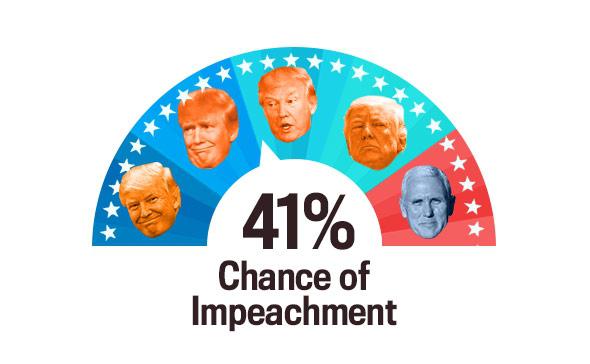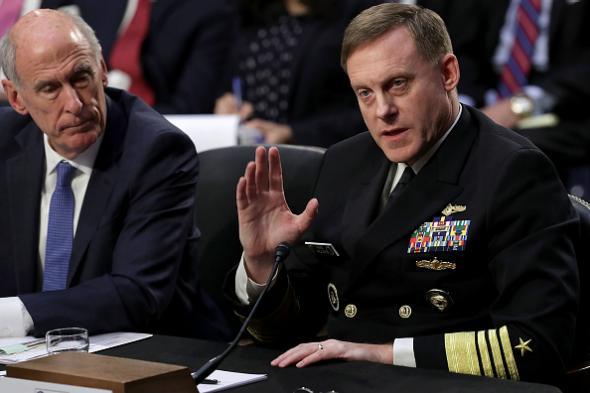In the tradition of the Clintonometer and the Trump Apocalypse Watch, the Impeach-O-Meter is a wildly subjective and speculative daily estimate of the likelihood that Donald Trump leaves office before his term ends, whether by being impeached (and convicted) or by resigning under threat of same.
The release of the statement that former FBI Director James Comey has prepared for his Thursday testimony to the Senate Intelligence Committee is a legitimate bombshell. It confirms that Comey will state under oath that Trump told him he hoped the FBI would drop its investigation of disgraced former National Security Adviser Michael Flynn; it describes the president seemingly admitting the possibility that some of his associates had committed Russia-related crimes; it involves a conversation between the FBI director and the president about Russian hookers. And yet, from the perspective of the case against Trump, it was likely not as important as something that happened earlier in the day—the Senate Intel Committee of Director of National Intelligence Dan Coats and NSA Director Mike Rogers.
As my colleague Michelle Goldberg explained:
Tuesday night, the Post reported that Coats told associates that Trump had asked him to intervene with then–FBI Director James Comey to get the bureau to back off its investigation of fired National Security Adviser Michael Flynn. (The Post had previously reported that Trump asked both Coats and Rogers to publicly deny that there was any evidence of collusion between the president’s campaign and Russia.) Grilled about these conversations with Trump, both men simply refused to answer, over and over again.
Concludes Goldberg: “It appears they couldn’t defend Trump without committing perjury. Nor could they tell the truth without dramatically undermining Trump’s administration.” Coats’ testimony in particular was all but an admission that Trump had, as reported, asked him to influence the FBI’s Russia investigation. There haven’t been previous reports that Trump made the same request of Rogers—but Rogers also refused to deny that such a request had occurred.
Tuesday morning, we knew with a lot of certainty that James Comey would testify that Trump had suggested he drop the Flynn investigation. Now we know that with total certainty. But we also now know there’s a possibility Trump made the same request of two other top intelligence officials, which would change the dynamics of a situation that’s currently a he said-he said between Trump and Comey. If Coats and Rogers are willing to answer questions about Trump’s behavior more directly in a more discreet setting, such as an interview with special counsel Robert Mueller—as seemed possible from their testimony—it’s hard to imagine Mueller’s final report on the investigation won’t come to the conclusion that the president engaged in an abuse-of-power campaign to get one of his friends out of trouble.
And yet, as I alluded to yesterday, until this stuff all tangibly happens—until the things the Mueller investigation might conclude become the things it did conclude—Republicans, who hold the majority in Congress, don’t really have any reason to bail on their president. So we’ll raise our meter, but only by a symbolic 1 percent.

Photo illustration by Natalie Matthews-Ramo. Photos by Chip Somodevilla/Getty Images, Win McNamee/Getty Images, Chris Kleponis-Pool/Getty Images, Drew Angerer/Getty Images, and Peter Parks-Pool/Getty Images.
